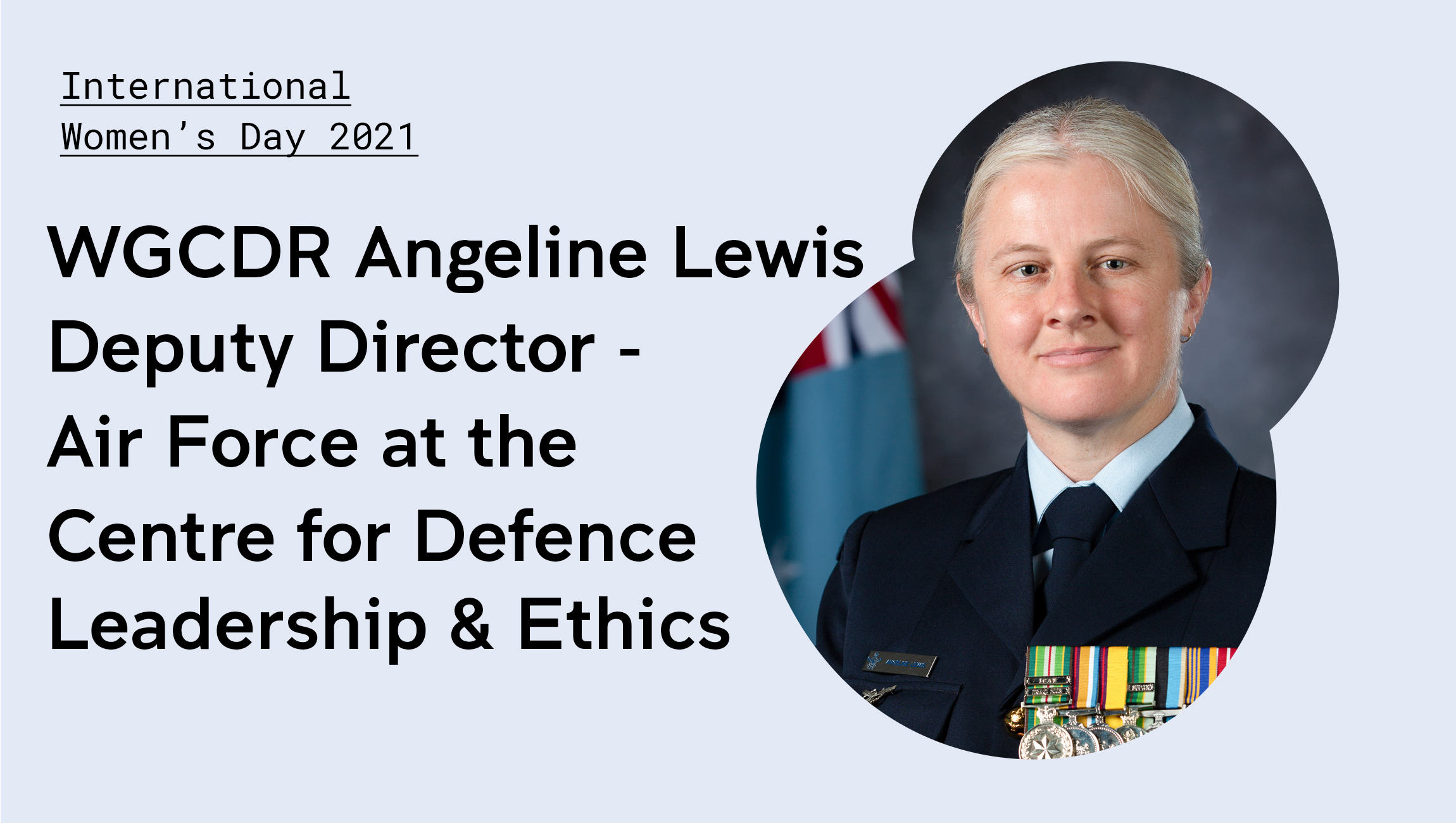International Women’s Day – Wing Commander Angeline Lewis
To celebrate International Women’s Day, we sat down with some of our amazing UNSW Canberra alumni, staff and students and asked them to answer your #WomenLead questions.
To celebrate International Women’s Day, we sat down with some of our amazing UNSW Canberra alumni, staff and students and asked them to answer your #WomenLead questions.

To celebrate International Women’s Day, we sat down with some of our amazing UNSW Canberra alumni, staff and students and asked them to answer your #WomenLead questions.
Wing Commander Angeline Lewis was the inaugural Minister’s Fellow for Women, Peace and Security at UNSW Canberra at the Australia Defence Force Academy for 2018-19. She is also a UNSW Canberra alumna, holding doctorates in international law (ANU) and in sea power history (UNSW Canberra).
Wing Commander Lewis shares her advice on diversity of leadership, the power of the collective and being true to yourself.
How important is diversity of leadership?
To be effective, diversity must have depth – that is, a ‘diverse’ board in which everyone has similar experience, and brings a similar leadership style, isn’t really diverse. There are many ways to lead, and it’s that diversity of style, experience and interest that brings different perspectives to the fore.
My experience as a female academic is that universities still operate like a men’s club and that much of the decision making and patronage is not done transparently. How do you deal with this culture, where only a few women are admitted into the club while the majority are told to wait or are excluded from where the power to make decisions lies?
The experience of exclusion can be deeply challenging – and hurtful. I think this is where the power of the collective can be extraordinary. I was humbled when deployed to South Sudan to be included in the warm solidarity of African women for each other, drawing on their shared experiences, and to see the strength this gave to their voice. When women band together, reinforcing each other’s voices, decisions and contributions, then we will break through.
Do you have any advice for changing the culture of an organisation to facilitate women in leadership positions?
Organisational cultures that value professional excellence and real leadership naturally draw high performing people to the top. It’s in their interests to do so! If this is not working for women, then we need to know what the obstacles specific to that organisation are, as well as common societal roadblocks. One of the key challenges is to ensure that the published values of the organisation are the same as those actually lived by the team: Is excellence actually developed and rewarded in a way that is transparent for everyone? If not, why not? How can we change it? To be valued in leadership, women must be valued as themselves at all levels.
What do you see as the difference(s) between leadership and management?
Leadership unifies and inspires, but management keeps the daily services on which we all depend ticking over. They’re both indispensable.
What would you tell your 20-year-old self about leadership?
You’ll make many mistakes but you’ll learn from them as you go. A good leader seeks to inspire others and themselves in equal measure – to reach higher, to understand more deeply, and to respect the inherent worth of every one of us.
What’s the best piece of leadership advice you’ve ever been given?
Be yourself. Anything else can only be a poor imitation.
Read more International Women’s Day Q&As: